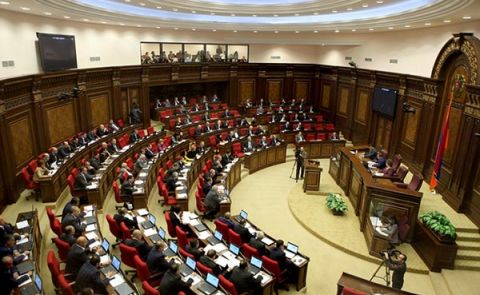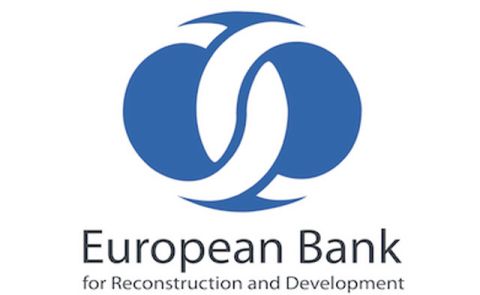
Georgian Parliament Speaker Participates in EU Parliamentary Conference, Engages in High-Level Bilateral Talks
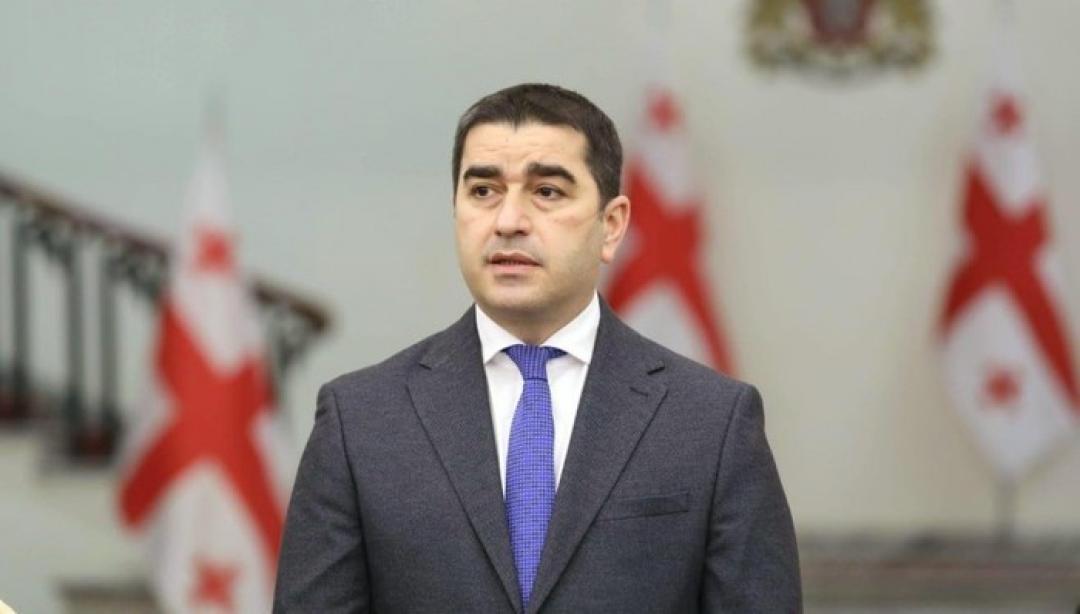
On May 11, Georgian Parliament Speaker Shalva Papuashvili arrived in Budapest to attend the annual Conference of Speakers of the European Union Parliaments (EUSC), held on May 12. Alongside his participation in the conference, Papuashvili held bilateral meetings with several European counterparts, including Theodoros Rousopoulos, President of the Parliamentary Assembly of the Council of Europe (PACE), Claude Wiseler, President of Luxembourg’s Chamber of Deputies, and Lorenzo Fontana, President of Italy’s Chamber of Deputies.
Papuashvili was accompanied by members of the Georgian Dream (GD) parliamentary delegation, including Nikoloz Samkharadze, Chair of the Foreign Relations Committee, and Levan Makhashvili, Chair of the EU Integration Committee.
In his remarks at the EUSC, Papuashvili reaffirmed Georgia’s solidarity with Ukraine, condemning ongoing Russian aggression. He emphasized that Georgia has consistently supported Ukraine’s sovereignty and will continue to do so.
However, the GD speaker also sharply criticized the European Union’s approach to its relations with Georgia, accusing Brussels of overreach and imposing directives that infringe on national sovereignty. He stressed that while European integration offers clear benefits, it should not compromise a nation’s identity or self-governance.
Papuashvili argued that the EU’s centralized decision-making process, driven by strict conditionality, does not always reflect consensus. He warned that such practices could hinder member states’ ability to make decisions aligned with their unique political and cultural contexts.
Despite Prime Minister Irakli Kobakhidze’s announcement in late 2024 that Georgia would pause its EU accession efforts until 2028, Papuashvili insisted that the government remains firmly committed to the European path. He contended that the GD administration has done more than any other to advance Georgia’s integration, though he criticized what he described as unfair treatment from EU institutions.
He particularly took issue with EU recommendations for judicial reforms, especially the proposed implementation of a vetting mechanism with foreign oversight. Papuashvili described this as an infringement on Georgia’s democratic sovereignty, claiming that no EU member state would accept such external interference in its judicial affairs.
He also cautioned against replacing consensus-based decision-making in the EU with a majority-driven approach. He stated that in a union of nation-states, smaller countries must have an equal voice, adding, “Democratic deliberation, not imposition, should guide our shared future.”
During a separate meeting on May 12, Papuashvili discussed with PACE President Theodoros Rousopoulos Georgia’s preparations for upcoming local elections and addressed the country’s decision to suspend participation in the Assembly. He criticized the January 2024 PACE resolution, which called for fresh elections and the release of political detainees, describing it as an overstep that prompted Georgia’s withdrawal from the body.
Papuashvili later reiterated via social media that Georgia remains aligned with the principles of the Council of Europe, emphasizing the importance of democratic legitimacy and the will of the electorate.
Also on May 12, Papuashvili met with Claude Wiseler to discuss deepening parliamentary cooperation between Georgia and Luxembourg. He highlighted Luxembourg’s role as a founding member of both NATO and the EU and underlined Georgia’s desire to strengthen its relationship with the country. The talks also covered domestic political developments and Georgia’s EU membership aspirations.
In a meeting held the same day, Papuashvili and Lorenzo Fontana reaffirmed the strong ties between Georgia and Italy. The conversation focused on bilateral cooperation, legislative affairs, and Georgia’s ongoing EU integration process.
Papuashvili emphasized that Georgia remains committed to fulfilling its obligations under the EU Association Agreement, with the goal of securing EU membership by 2030. Fontana, in turn, expressed Italy’s continued support for Georgia’s European ambitions and praised the robust inter-parliamentary dialogue between the two nations.
In a subsequent post, Papuashvili underlined the importance of the High-Level Dialogue established with Italy in 2023, noting Italy’s foundational role in the EU and its influence on the bloc’s future direction.
See Also

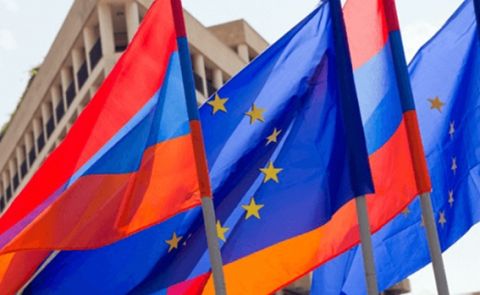
Pashinyan and Mirzoyan Hold Separate Meetings with European Leaders to Focus on Armenia’s EU Integration, Human Rights Progress, and Regional Developments
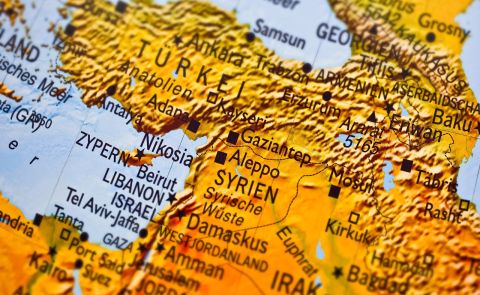
Separatist Abkhazia and Syria Discuss Strengthening Academic Ties, Potential Agreement Between Universities

Georgia Announces Legislative Changes Targeting Foreign Nationals in Anti-Government Protests

Azerbaijan Welcomes PKK's Announcement to Disband, Calling It a Step Toward Peace
